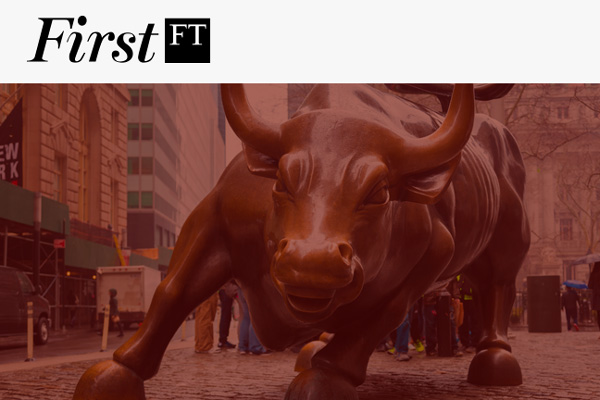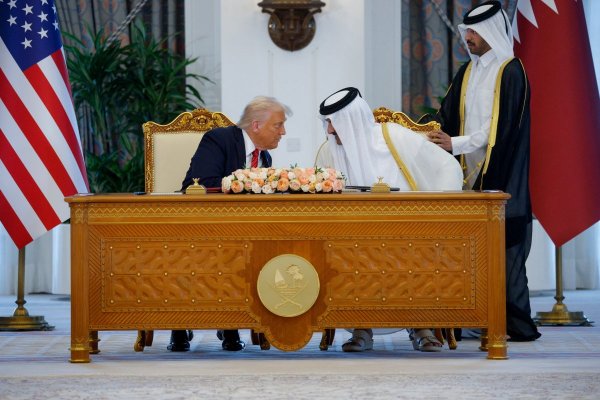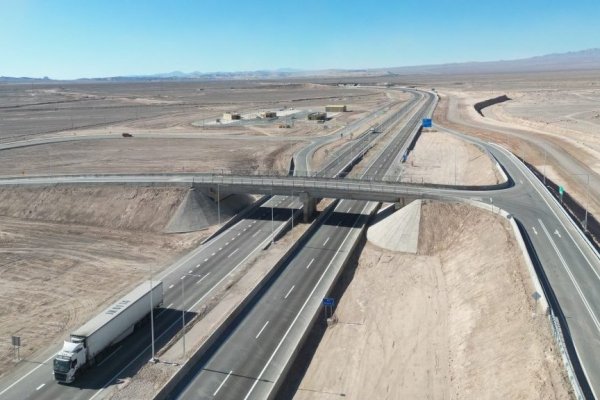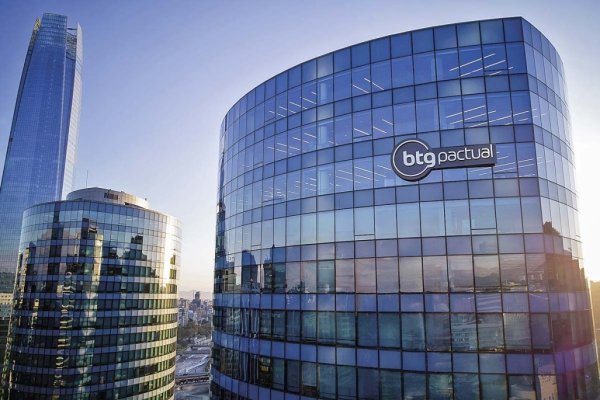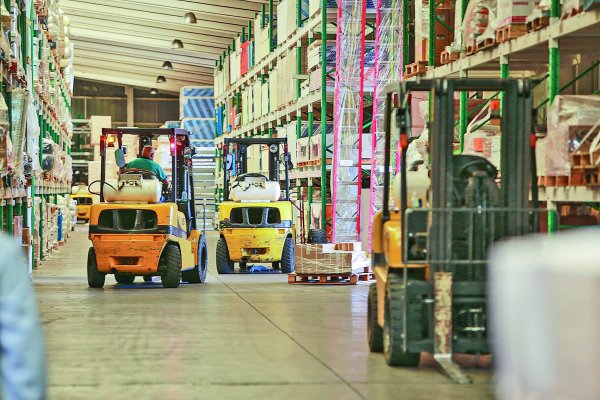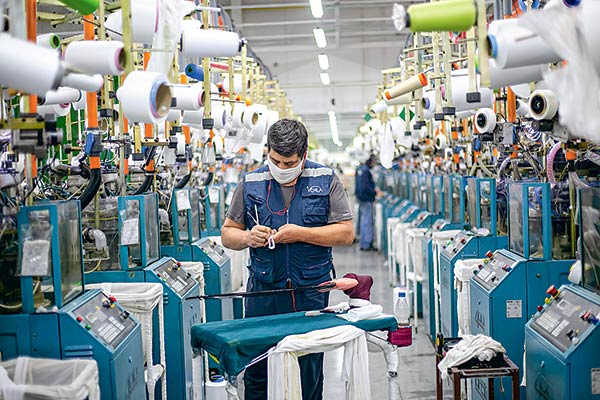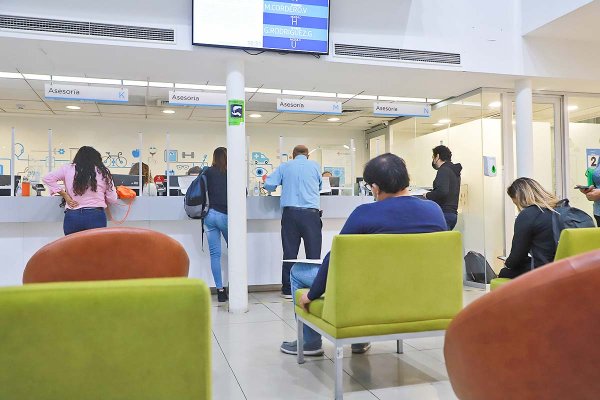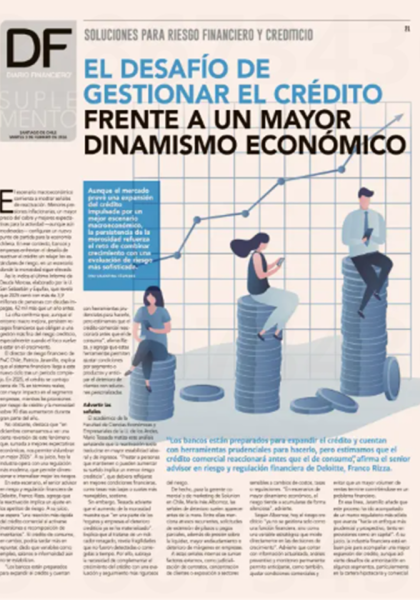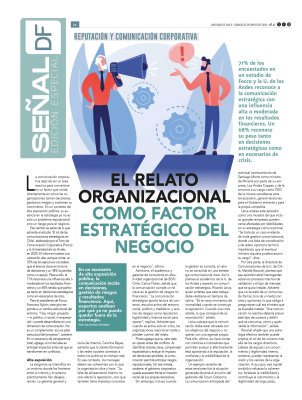Brendan Ahern, CIO de KraneShares: “Creemos que 2023 será el año del consumo interno en China”
Para el director de inversiones de esta consultora especializada en China, la recuperación económica del país no ocurrirá en forma de V, asegura, sino incremental, pero será muy clara durante este año.
Por: Marcel Oppliger
Publicado: Martes 9 de mayo de 2023 a las 04:00 hrs.

Foto: Verónica Ortíz
Noticias destacadas
Krane Funds Advisors, propiedad de China International Capital Corporation (CICC), se dedica a asesorar inversionistas interesados en diversificar su portafolio de colocaciones en el país asiático.
Brendan Ahren, director de inversiones de KraneShares, cuyos fondos cotizados en bolsa son distribuidos por BTG Pactual, estuvo recientemente en Santiago, conversando con Diario Financiero sobre el panorama económico para este año en el gigante de Asia.
“El gobierno no le ha dado dinero a la gente. Han sido muy prudentes y conservadores con sus medidas de estímulo. Por eso la reactivación ocurrirá a lo largo del año, pero no de la noche a la mañana, porque la confianza de los consumidores tarda en recuperarse”.
- Hoy se habla mucho de la rivalidad entre China y Estados Unidos, y sobre la posibilidad de desacople (decoupling) de sus economías, que están estrechamente vinculadas de muchas maneras. ¿Qué opina al respecto?
- Creo que se dice muy a la ligera, pero en realidad sería muy difícil. Las matemáticas no cuadran. Muchas empresas estadounidenses están en China no sólo porque es un mercado enorme, no es sólo mano de obra barata. Es también porque pueden vender los bienes que fabrican en la propia China. No sólo hay mano de obra cualificada, sino también muy buenas carreteras y autopistas, y buenos aeropuertos y excelentes puertos. Y China, al estar en el corazón de Asia, está en una posición única para fabricar productos y trasladarlos a 4.000 millones de personas en esa región. ¿Dónde pondrías una fábrica? ¿Dónde hay 4.000 millones de personas o 400 millones?
- ¿Qué me dice del discurso de “devolver empleos a Estados Unidos”?
- Suena muy bien, pero creo que también distrae de algunos de los problemas reales que tenemos en EEUU: la crisis financiera, el debate sobre el techo de la deuda y toda una serie de cuestiones sociales. Los políticos quieren hablar de Tik Tok, pero no creo que sea el tema principal, no es lo que me preocupa. Me preocupan las armas y las escuelas y la delincuencia, y el 60% de probabilidades de una recesión en EEUU. Así que todo eso es un poco una distracción.
- ¿Qué temas sobre China está siguiendo más de cerca?
- Hace un año, los inversores estaban preocupados por la regulación de Internet en China; por la regulación estadounidense de las empresas chinas que cotizan en las bolsas de EEUU (la ley Holding Foreign Companies Accountable Act); por la estricta adhesión de China al Cero Covid; por el sector inmobiliario y la preocupación de que Evergrande fuera a ser el momento Lehman de China; y por supuesto por la dimensión geopolítica. Pero hoy, cuatro de esas cinco luces rojas se han vuelto verdes, en verdad.
- ¿Incluso el sector inmobiliario?
- Bueno, los promotores inmobiliarios en dificultades se han convertido básicamente en empresas estatales. El Gobierno les va a permitir salir adelante y terminar lo que empezaron. Si caen podrían ser la primera ficha del dominó y un riesgo de inestabilidad demasiado grande, así que no va a permitir que esas empresas fracasen. Van a obligarlas a cumplir lo que han prometido, que es terminar los proyectos que han empezado. Además, también hay promotores inmobiliarios bien gestionados en China.
Y las empresas pagarán por sus pecados, no me cabe duda. No creo que Evergrande exista después de que venza su último proyecto y se pague su último bono. ¿Pero un impago total? No, porque a 120 bancos se les debe dinero, a 120 instituciones financieras se les debe dinero.
- Durante años se ha dicho que China tiene que pasar de una economía orientada a la exportación a una economía de consumo. ¿Está ocurriendo eso ahora?
- Más de lo que se cree, en efecto. Más de tres cuartas partes del crecimiento del PIB chino se deben al consumo interno. Su economía se está orientando mucho más hacia el consumo, aunque sigamos centrándonos en China como fabricante. Pero en realidad, la historia del consumo rivaliza con la historia de la exportación hoy en día. En el primer trimestre de este año, las ventas minoristas online crecieron más rápido que las ventas totales. Más de un tercio de todas las ventas al por menor se produce en línea, por eso se necesitan a los Alibabas y JDS, a los Pinduoduo y los VIPshops.
- Pero el desempleo sigue siendo muy alto, sobre todo entre los jóvenes.
- Uno de los aspectos positivos de las cifras del primer trimestre que acaban de publicarse es que los restaurantes minoristas experimentaron un gran aumento, y los restaurantes y otros servicios emplean a mucha gente, en especial jóvenes. Si se piensa en lo que realmente sufrió con el Cero Covid, fueron sobre todo los servicios y el consumo. Así que la economía de China no va a tener una recuperación en forma de V, va a ser más incremental, pero la confianza del consumidor está volviendo. El primer trimestre fue mejor que el cuarto del año pasado, y el segundo será mejor que el primero.
- ¿Por qué dice que no va a ser una recuperación drástica en forma de V?
- Porque el gobierno no le ha dado dinero a la gente. Han sido muy prudentes o conservadores con sus medidas fiscales, sus medidas de estímulo. Y por eso la reactivación ocurrirá a lo largo de este año, pero no de la noche a la mañana, porque la confianza de los consumidores tarda en recuperarse. Y creo que a medida que la gente adquiera más confianza, gastará más, y probablemente invertirá más. Las empresas volverán a contratar y el desempleo bajará.
- ¿En qué sectores les aconseja a sus inversores que apuesten ahora mismo en China?
- Creemos que 2023 será el año del consumo interno en China. Intentamos moderar el entusiasmo diciendo que va a ser incremental. Y las empresas de comercio electrónico están muy expuestas a esa tendencia en el buen sentido. En esas empresas, a pesar de que los últimos años han sido complejos, los ingresos agregados reales se han mantenido bastante bien. Ellas son los motores de transmisión del consumo interno, que se produce mayormente en Internet.
Brendan Ahern, CIO de KraneShares
“We think 2023 is the year of the China domestic consumption story”
The investment manager of this consulting firm specializing in China says the country's economic recovery will not occur in a V-shape, but incrementally, yet it will be very clear during this year. “Consumer confidence is coming back. Q1 was better than Q4 of last year, and Q2 will be better than Q1”, he assures.
- There’s a lot of talk about China-US rivalry and decoupling nowadays. How do you feel about that?
- We believe that most relationships are dependent upon communication and dialogue. And that's where the US and China are not doing a very good job. Businesspeople like us are getting on airplanes, and having nice meals, and conversing with people and getting along, but diplomatically it's not happening. And I think for the benefit of global economy there should be more people advocating that the two sides actually engage with one another, because there's so much riding on this relationship.
- Can decoupling really happen?
- I think it rolls off the lips, but it would be very difficult in reality. Look, there's 100 million Chinese employed in manufacturing and the entire US labor force is 120 million. So, does every American want to go work in the equivalent of a Chinese factory? The math doesn't work out that well.
Plus, a lot of these American companies are in China not just because it's a huge market, it's not just cheap labor. It's also that you can sell those goods that you manufacture in China itself. China is unique in that it doesn’t just have the skilled labor force, but also really good roads and highways, and nice airports and excellent ports. So not all emerging markets have the logistical know-how to not just manufacture goods, but to move them. And China, being in kind of the heart of Asia, is uniquely positioned to manufacture goods and then move it to 4 billion people in aggregate Asia. Where would you put a factory? Where there's 4 billion people or 400 million? You put it where the biggest market is and that is Asia, definitely.
- What about the narrative of getting jobs back to America and all that?
- It sounds great, but I think it's also a distraction from some of the real problems we have in America: you've got a financial crisis happening, you have the debt ceiling discussion, and then a whole host of social issues. And politicians want to talk about Tik Tok. You know, I have kids that are becoming teenagers, so I'm not a fan of Tik Tok, but I don't think that's the main issue, that's not what I'm worried about. I'm worried about guns and schools and crime and, you know, 60% probability of a recession in the United States happening. So, all that is a little bit of a distraction.
- What has been your main China focus recently? What stories have you been looking at more closely?
- A year ago, investors were worried about China's Internet regulation, about the US regulation of Chinese companies listed on US exchanges (the Holding Foreign Companies Accountable Act), and China's strict adherence to Zero-covid. Also, real estate was a real concern, that Evergrande was going to be China's Lehman moment. And of course, the geopolitical dimension. But today, four out of five of these issues have turned green, really.
- Even real estate?
- Well, the distressed property developers have become basically like state-owned enterprises. The government is going to allow them to muddle through and finish what they started, because they could be the first domino and too big a risk of instability. So, you're not going to allow these companies to fail, but you're going to force them to deliver on what they've promised, which is finishing the projects that they've started. And then there are well-run property developers in China as well.
- Not everybody is Evergrande, you say?
- Not everybody, exactly. Western governments and central banks are always reacting to crises. You know, the mortgage crisis, or Silicon Valley Bank. I mean, Silicon Valley Bank was down the road from the San Francisco Federal Reserve and they still couldn't see it! So they're always reacting. In China, the government is always proactively trying to figure out where there might be problems and trying to solve those problems before they happen. But the companies will pay for their sins, I have no doubt. I don't think Evergrande will exist after its last project is due and its last bond is paid off. But an outright default? No. Because 120 banks are owed money, 120 financial institutions are owed money.
- It’s been said for years that China needs to pivot from an exports-oriented economy into a consumption economy. Is it happening now?
- More than you think. Upwards of three fourths of China's GDP growth is driven by internal consumption. Its economy is becoming much more consumption geared, yet we're still focused on China as a manufacturer. But actually, the consumption story rivals the exporting story today. And that's why the Government actually needs the Internet companies.
- Because they spur consumption.
- They're the transmission engines for domestic consumption as it occurs online. And so you can't kill the transmission vehicle. In the first quarter of this year, the interesting thing is that online retail sales grew faster than overall sales. More than a third of all retail sales happens online, which was why you need the Alibabas and JDS, and Pinduoduo's and VIPshops.
- How does that play with high unemployment?
- Well, again, where China and the US are more similar than dissimilar is that the largest employer in the United States is not Fortune 500 companies. It's small businesses. And small and medium enterprises in China dominate employment.
One of the positives from the Q1 figures that just came out was that retail restaurants had a very sharp increase, and restaurants employ lots of people. And if you think about what really suffered in zero COVID, it was a lot of consumption service restaurants. So China's economy is not going to have a drastic V-shaped recovery, it's going to be more incremental, but consumer confidence is coming back. So, Q1 was better than Q4 of last year, and Q2 will be better than Q1.
- Why do you say it’s not going to be like a drastic V-shape recovery?
- Because they didn't give people money. They've been very prudent or conservative with their fiscal measures, their stimulus measures. And that's why it'll happen over the course of this year. It's just not happening overnight, because consumer confidence takes time to rebuild. And I think that as people gain more confidence, they will spend more, and they're probably going to invest more and companies will re-hire. I think as this service element comes back unemployment will come down. And so we're constructive on that; this incremental recovery plays out over the course of this year.
- What sectors are you advising your investors to bet on right now in China?
- We do think 2023 is the year of the China domestic consumption story. We try to temper enthusiasm by saying it's going to be incremental. And then the e-commerce companies are very exposed to that trend in a good way. And those companies, even though the last few years have been a struggle because of China's internet regulation, US regulation, zero-covid or real estate, you know, their actual aggregate revenue has held up pretty well.

Te recomendamos
ARTICULOS RELACIONADOS
Newsletters
LO MÁS LEÍDO
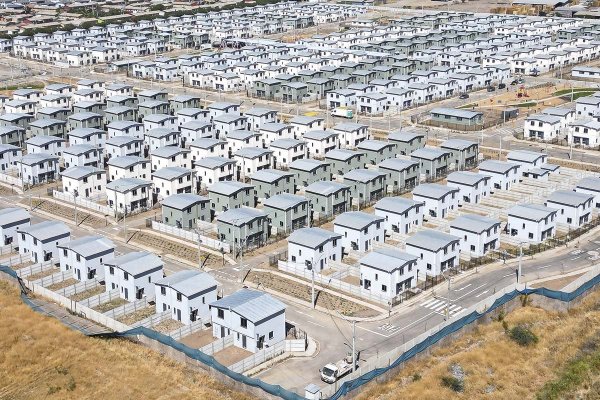
“Existe una profunda preocupación”: Caída en la entrega de los principales subsidios habitacionales enciende las alarmas en la CChC
El gremio subrayó que los datos oficiales muestran que en 2026 el total de subsidios habitacionales disminuiría un 15,9%, hasta llegar a 161.233 unidades, “lo que implica un retroceso significativo en los esfuerzos de continuidad y reactivación del sector”.

Francisco Aninat, socio de Aninat Abogados: "En los próximos 12 meses, la meta es consolidarnos como uno de los estudios líderes en la resolución de las disputas de negocios en el país"
Tras la separación de Bofill Escobar Silva, estudio donde fue socio por más de 12 años, el profesional revela sus planes en la firma donde desarrollará el área de resolución de disputas complejas.
BRANDED CONTENT

Dra Susan Bueno y el impulso que la mueve a avanzar, investigar y aportar a la sociedad.
Su curiosidad temprana la llevó a estudiar las enfermedades infecciosas y a contribuir en el desarrollo de la primera vacuna aplicada masivamente en Chile contra el Covid-19. Hoy, la Dra. Susan Bueno, reconocida en 2024 como inventora del año, continúa aportando desde la investigación al fortalecimiento de la salud. Mira aquí su entrevista

Dra Susan Bueno y el impulso que la mueve a avanzar, investigar y aportar a la sociedad.
Su curiosidad temprana la llevó a estudiar las enfermedades infecciosas y a contribuir en el desarrollo de la primera vacuna aplicada masivamente en Chile contra el Covid-19. Hoy, la Dra. Susan Bueno, reconocida en 2024 como inventora del año, continúa aportando desde la investigación al fortalecimiento de la salud. Mira aquí su entrevista

Jorge Carinao: la fuerza de creer cuando todo parece imposible
Te invitamos a conocer la historia de Jorge Carinao, deportista paralímpico chileno que ha transformado la adversidad en fuerza y el esfuerzo en orgullo nacional, demostrando que no existen límites cuando hay convicción y sueños claros. No te pierdas esta inspiradora entrevista

Camila Elizalde; una chef que ha hecho del perfeccionismo una fuerza transformadora
Conoce aquí la entrevista a una de las chef más destacadas a nivel nacional y americano en el arte de la pastelería. En este capítulo, Camila reflexiona sobre los desafíos de liderar en un entorno competitivo y la importancia de construir espacios donde la excelencia y la empatía convivan. Mira la entrevista haciendo aquí.

En Perfeccionistas entrevistamos a un deportista chileno que quiere llegar tan alto como sus saltos
Mauricio Molina nos cuenta de su pasión por el BMX y cómo se convirtió en el primer chileno en competir en esta disciplina en unos Juegos Olímpicos y ser parte del selecto grupo de los 25 mejores del mundo.

 Instagram
Instagram Facebook
Facebook LinkedIn
LinkedIn YouTube
YouTube TikTok
TikTok









